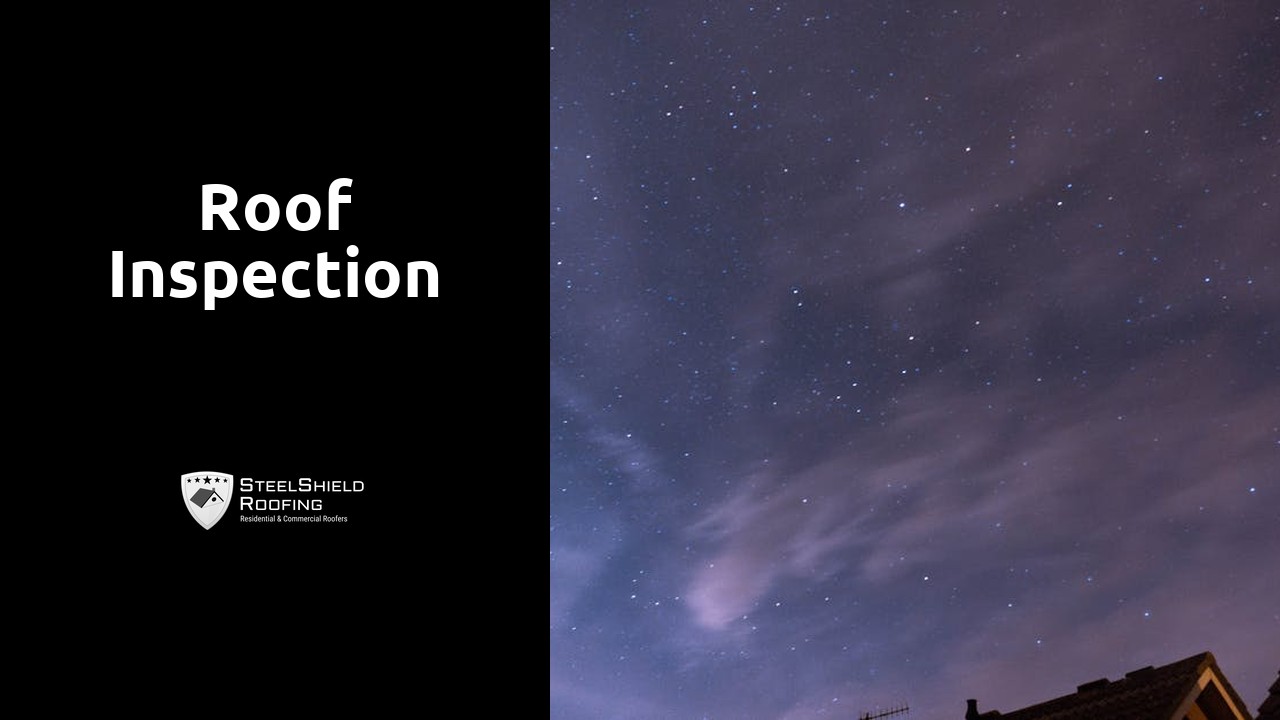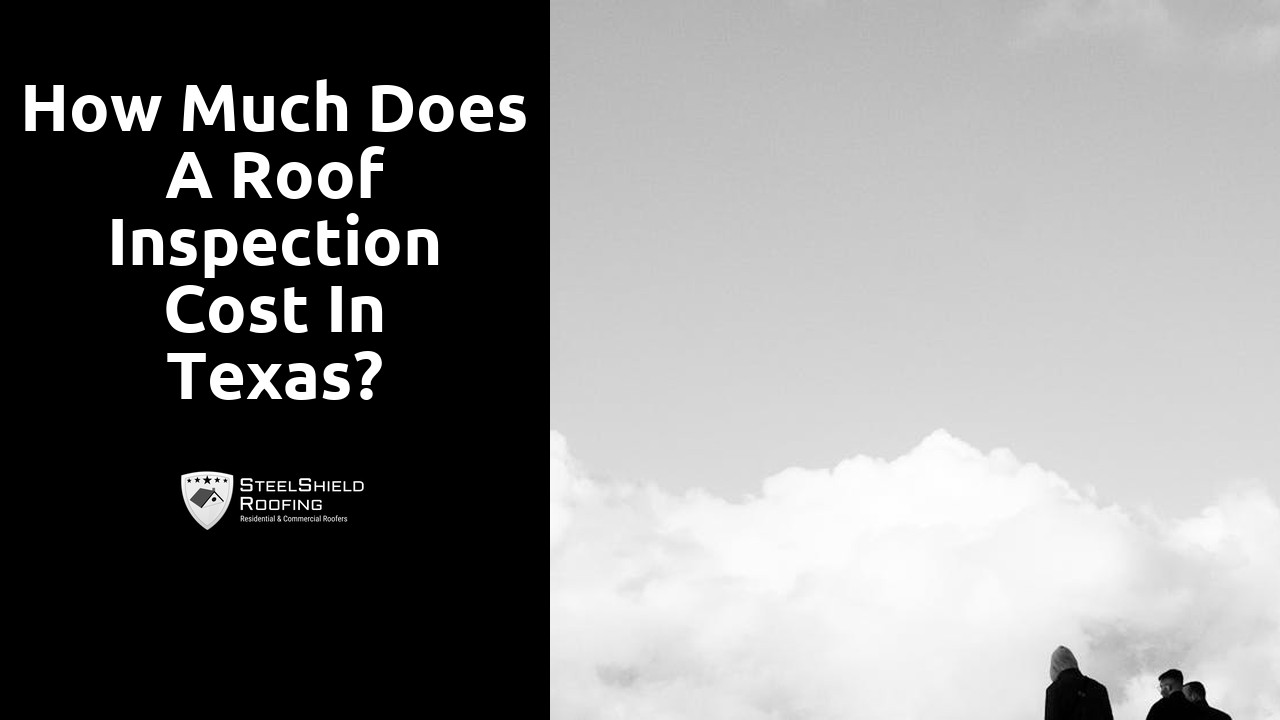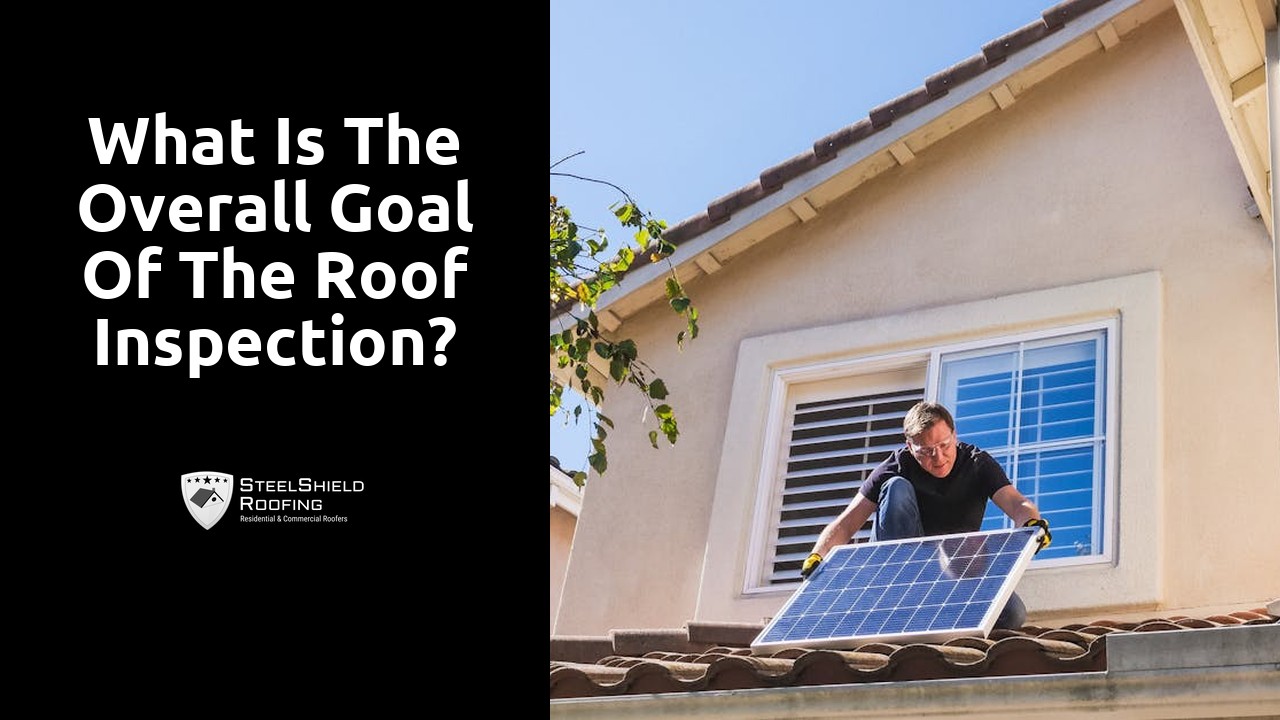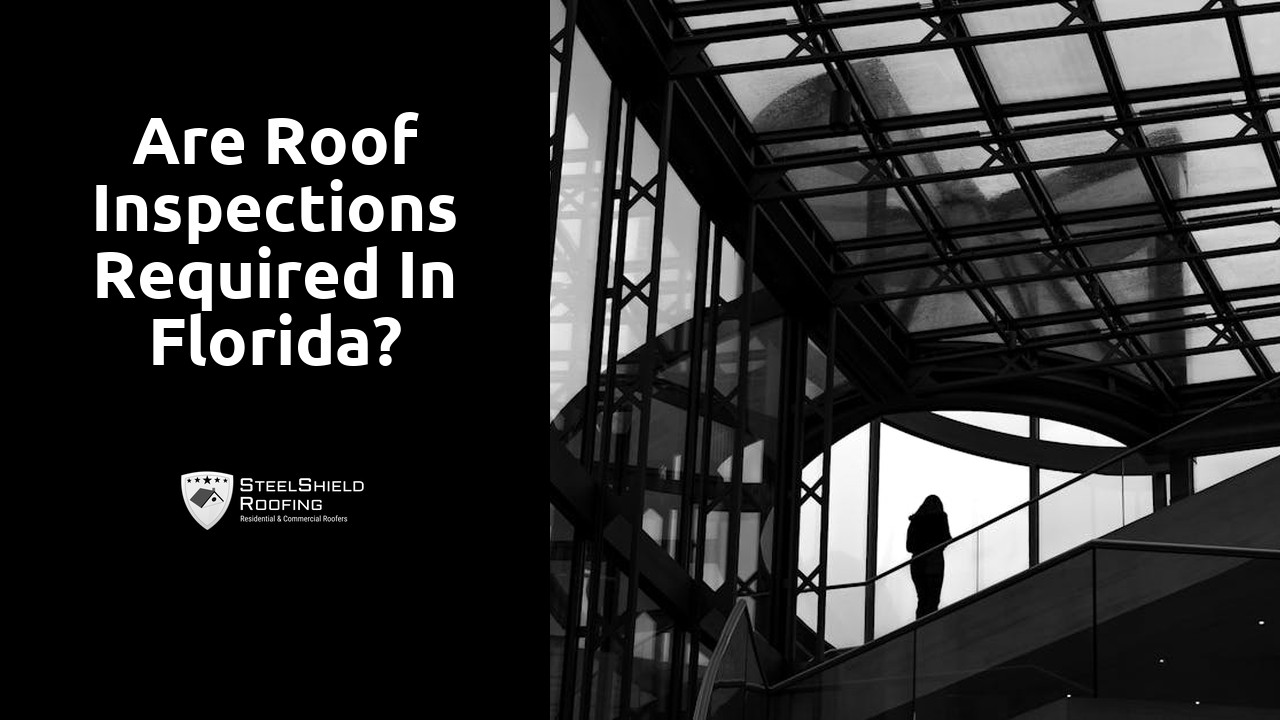
Roof inspection
Table Of Contents
SteelShield Roofing Houston provides comprehensive roof inspection services to ensure that your roof is in optimal condition. Our team of experienced professionals will thoroughly assess your roof for any signs of damage, wear and tear, or potential issues that may arise in the future. We follow a strict set of guidelines and standards to ensure that our inspections are thorough and efficient. With our expertise and attention to detail, you can trust that your roof is in good hands with SteelShield Roofing Houston. Don't wait until it's too late - schedule a roof inspection with us today to protect your investment and ensure the longevity of your roof.
Roof Inspection Checklist
When conducting a roof inspection, it is crucial to thoroughly assess both the interior and exterior of the roof. Start by examining the shingles for any signs of damage, such as cracks, curling, or missing pieces, which may indicate the need for repairs or replacement. Check for any leaks or water stains in the attic or ceiling, as these can be indicative of a roofing issue that needs immediate attention. Additionally, inspect the gutters and downspouts for any blockages or damage that could impede proper drainage and lead to water pooling on the roof.
Next, make sure to evaluate the flashing around chimneys, vents, and skylights to ensure they are properly sealed and intact. Damaged or deteriorated flashing can be a common source of leaks and water damage. Additionally, inspect the roof valleys for any debris accumulation or signs of wear and tear, as these areas are prone to water buildup and potential leakage. Lastly, assess the overall condition of the roof structure, looking for any sagging or signs of aging that may require professional attention to prevent further damage.
Hop over here to discover more.
Key Areas to Assess During an Inspection
During a roof inspection, several key areas need thorough assessment to ensure the overall health and integrity of your roofing system. One crucial aspect to evaluate is the condition of the shingles. Check for any signs of damage or wear, such as curling, cracking, or missing shingles, as these can indicate potential issues that may worsen over time. Properly functioning gutters and downspouts are another critical area to inspect. Make sure they are clear of debris and properly channeling water away from the roof to prevent water damage and leaks.
The flashing around roof penetrations, such as chimneys, vents, and skylights, should also be carefully examined. Damaged or improperly installed flashing can lead to water infiltration and structural damage. Additionally, check for any signs of sagging or uneven areas on the roof, as these can indicate potential structural issues that need to be addressed promptly. By focusing on these key areas during a roof inspection, you can catch problems early and ensure the longevity of your roof.
Understanding Roof Inspection Reports
When it comes to understanding roof inspection reports, it's essential to pay close attention to the details provided by the inspector. These reports are crucial documents that outline the current condition of your roof, potential issues, and recommended actions to address any problems. Each section of the report is carefully crafted to give you a comprehensive overview of the state of your roof.
Inspectors use specific language and terminologies in their reports to describe observations accurately. It's important to familiarize yourself with these terms to grasp the severity of any identified issues properly. Additionally, make sure to review the findings and recommendations with your inspector to gain a clearer understanding of the necessary steps that need to be taken to maintain or repair your roof. By working closely with your inspector and carefully dissecting the report, you can ensure that your roof remains in top-notch condition for years to come.
Interpreting Findings and Recommendations
After the roof inspection has been completed, it is crucial to carefully interpret the findings and understand the recommendations provided by the inspector. The findings may include various issues such as missing or damaged shingles, signs of water leaks, or potential structural concerns. It is important to pay close attention to the severity of each finding and prioritize any urgent repairs that may be necessary to prevent further damage.
When interpreting the recommendations, it is advisable to seek clarification on any technical jargon or unfamiliar terms used in the report. The recommendations could range from simple repairs and maintenance tasks to more extensive renovations or replacements. It is essential to weigh the cost of recommended actions against the potential risks of not addressing the issues promptly. By understanding and acting upon the findings and recommendations from a roof inspection, homeowners can ensure the longevity and structural integrity of their property's roof.
Importance of Seasonal Roof Inspections
Seasonal roof inspections play a crucial role in ensuring the longevity and durability of your roof structure. By conducting regular inspections, you can proactively identify any potential issues before they escalate into costly repairs or replacements. The changing seasons bring varying weather conditions that can affect the condition of your roof, making it essential to assess and address any vulnerabilities promptly.
Moreover, seasonal inspections provide an opportunity to maintain the overall integrity of your roof and prevent small problems from turning into major headaches down the road. By staying ahead of any issues that may arise, you can save both time and money in the long run. With seasonal roof inspections, you can rest assured that your roof is well-maintained and ready to withstand whatever Mother Nature throws its way.
Addressing Weatherspecific Roofing Concerns
Professionals stress the significance of considering weather-specific concerns during roof inspections. Weather conditions such as heavy rainfall, snow accumulation, strong winds, and extreme heat can all have a profound impact on the condition of a roof. In regions prone to heavy rain, it is imperative to ensure that the roof has proper drainage systems in place to prevent water pooling, which can lead to leaks and structural damage over time.
Snow accumulation poses a unique challenge, particularly in areas experiencing harsh winters. Excessive weight from snow can strain the roof structure, leading to potential collapses if not addressed promptly. Installing snow guards or ensuring proper insulation to prevent ice dams can help mitigate these risks. Moreover, regular inspections during the winter months can detect any issues early on and prevent costly damage in the long run.
FAQS
Why is roof inspection important?
Regular roof inspections help identify any potential issues early on, preventing costly repairs down the line and extending the lifespan of your roof.
How often should I have my roof inspected?
It is recommended to have your roof inspected at least once a year, ideally in the spring or fall when weather conditions are more favorable.
What should I expect during a roof inspection?
During a roof inspection, a professional will assess the condition of your roof, looking for signs of damage, wear and tear, leaks, and any other issues that may compromise its integrity.
How long does a roof inspection typically take?
The duration of a roof inspection can vary depending on the size and complexity of the roof, but on average, it can take anywhere from 30 minutes to a few hours.
Can I inspect my roof myself or should I hire a professional?
While you can visually inspect your roof from the ground, it is recommended to hire a professional roofing contractor who has the expertise and equipment to conduct a thorough inspection and provide accurate recommendations.


